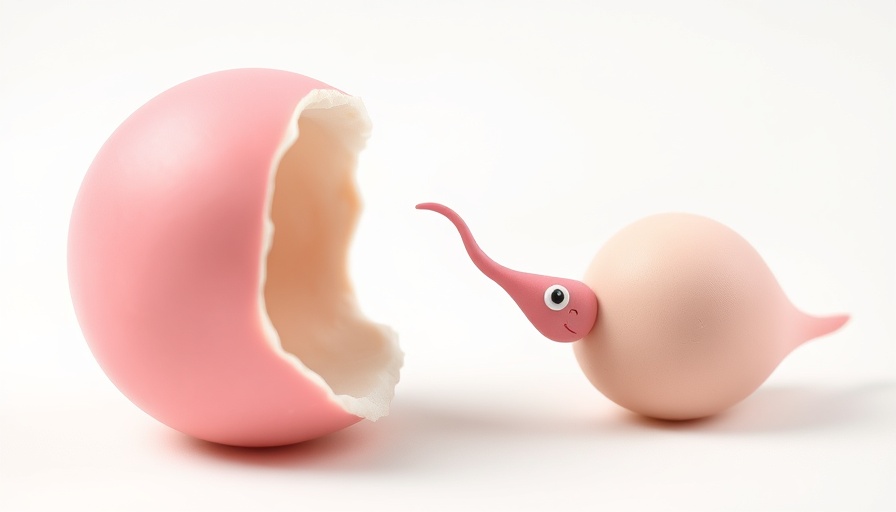
Understanding Common Myths Around Conception and Fertility
For many women embarking on the journey of trying to conceive, navigating the myriad of information available can often feel overwhelming. Some might be swayed by outdated myths that perpetuate misconceptions about sex and pregnancy. To dispel these myths, a fertility specialist sheds light on seven common misbeliefs that can lead couples astray, causing unnecessary stress and disappointment.
Myth 1: Daily Intimacy is Essential for Pregnancy
One of the most prevalent myths surrounding conception is the belief that couples must engage in sexual intercourse every day or even multiple times a day during the woman’s fertile window. Contrary to this belief, studies indicate that sperm can survive in the female reproductive tract for up to 72 hours, whereas an egg only lives for about 24 hours post-ovulation. This allows for effective conception even if couples don’t have sex every day. Stress and pressure from frequent attempts can lead to emotional strain, detracting from the joyful aspect of sex and intimacy.
Myth 2: The Hour Post-Intercourse Requirement
There’s a well-known notion that lying down flat for an extended period after sex is crucial for helping sperm reach the egg. However, while lying down for 10-15 minutes post-intercourse can be beneficial for optimizing the upward journey of sperm, the notion that one must remain horizontal for an hour is unfounded. After just a short period, it’s perfectly fine to continue with daily activities. Stressing over the perfect position or focusing on semen leakage can overshadow the genuine connection and intimacy between partners.
Myth 3: Semen Leakage Signals Failure
It’s common for some semen to leak out of the vagina after sex, leading many women to think this means conception is impossible. In reality, the majority of sperm swiftly travel into the cervical canal, leaving behind excess seminal fluid. Hence, leakage is a normal occurrence and does not diminish the chances of becoming pregnant.
Myth 4: Urinating After Sex is Harmful
Some may believe that urinating after intimacy will wash away sperm necessary for conception. On the contrary, urinating post-coitus is important for preventing urinary tract infections (UTIs), a common concern for women. While it’s wise to avoid washing or douching excessively, using the bathroom is a healthy practice for maintaining feminine hygiene.
Myth 5: Lubricants Are Safe for Conception
While lubricants can indeed enhance comfort during intimate moments, many commercially available options are not sperm-friendly. Research shows that most water-based lubricants can adversely affect sperm motility. Couples attempting to conceive should consider using fertility-friendly lubricants that won’t hinder their efforts.
Bridging Conventional Wisdom and Modern Science
Understanding these myths is not just about debunking inaccurate information; it’s crucial for fostering a supportive atmosphere where couples can pursue pregnancy without unnecessary stress. Couples are encouraged to rely on evidence-based information rather than outmoded beliefs that may overshadow their efforts.
Emotional and Social Implications
Addressing these myths isn't only about providing facts; it’s about empowering individuals to have open discussions about their intimate health. Social norms and cultural pressures can often contribute to the perpetuation of these myths, keeping the conversation of sexual health shrouded in stigma. Education plays a key role in dismantling these barriers, allowing women to embrace their reproductive health and fertility journey confidently.
Seeking Help and Reliable Sources
For anyone struggling with issues related to conception or feeling burdened by such myths, it's crucial to seek support from knowledgeable healthcare providers. Fertility specialists and gynecologists can offer tailored advice that considers individual circumstances, helping couples navigate their unique journeys to parenthood.
Take Charge of Your Fertility Journey
In conclusion, recognizing and debunking sex myths is essential for a positive fertility journey. Couples should strive for a supportive and informed approach that emphasizes emotional wellness and factual clarity. Remember, informed decisions can transform your intimate experience and enhance the journey of trying to conceive.
For further insights into intimate health and wellness, consider reaching out to local fertility specialists or healthcare providers who can provide guidance tailored to your unique situation.
 Add Row
Add Row  Add
Add 




Write A Comment